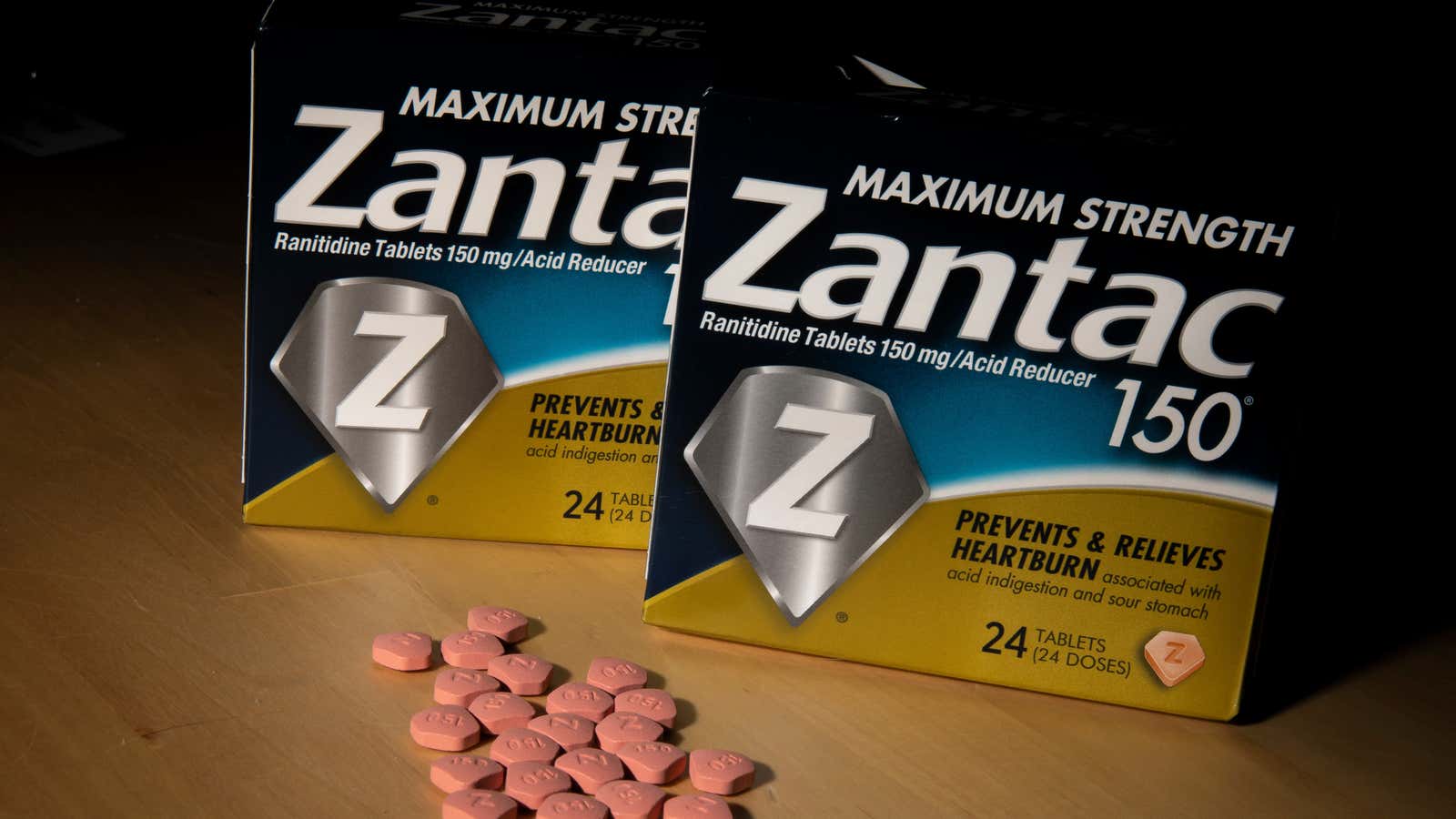Why Zantac Is Being Taken Off the Shelves

CVS recently announced that it is removing the heartburn drug Zantac from shelves , along with its store’s generic drug. One generic ranitidine company, including Rite-Aid, Walmart and Walgreens, is recalling a version . But the FDA says it’s safe to take the drug for now – so what’s the deal?
Testing reveals a small amount of carcinogen
The active ingredient in Zantac is ranitidine. The FDA recently announced that several branded and generic ranitidine products contain small amounts of the carcinogen NDMA.
The NDMA (unrelated to the party drug MDMA) has also triggered a recent withdrawal of blood pressure medications . In this case, NDMA was a contaminant introduced during production. But when it comes to heartburn medications, the problem seems to be that ranitidine itself can release NDMA after interacting with enzymes in our body.
The FDA is currently working with manufacturers on further testing.
However, the amounts are so small that the drugs are still likely safe (ish)
NDMA is not only found in drugs; it exists in the world around us, including in our food and water. It is formed unintentionally during some manufacturing processes, but it also occurs naturally . It’s in the water. It’s in the air. But it doesn’t really matter, because we never get to grips with it to a large extent.
The FDA has not (yet) asked the company to withdraw the drugs because there is little evidence to suggest that the levels in the heartburn pills are particularly dangerous. They say:
While NDMA can be harmful in large quantities, the levels that the FDA found in ranitidine in preliminary tests are barely higher than the amounts you would expect to find in conventional foods.
This means that you must decide whether to continue taking Zantac and its generics. CVS and one of the generic manufacturers decided to phase out the products; other manufacturers and stores still sell theirs. And the FDA has warned consumers (that’s us) so we can decide if we want to switch drugs.
What should you do?
If you truly love your ranitidine and no other brand is right for you, you may decide to keep taking it. So far, the FDA thinks this is normal. (They’re still testing samples, though, so stay tuned for policy changes.)
But if you want to switch, I wouldn’t blame you. There are many prescription and over-the-counter heartburn medications available. If you are working with a doctor to address your digestive problems, ask their advice.
If not, there are other options. Take a look at what’s left on the shelves and avoid using ranitidine in the active ingredient list. Pharmacists are often happy to help you choose an over-the-counter drug , so if you have any questions, please ask them.